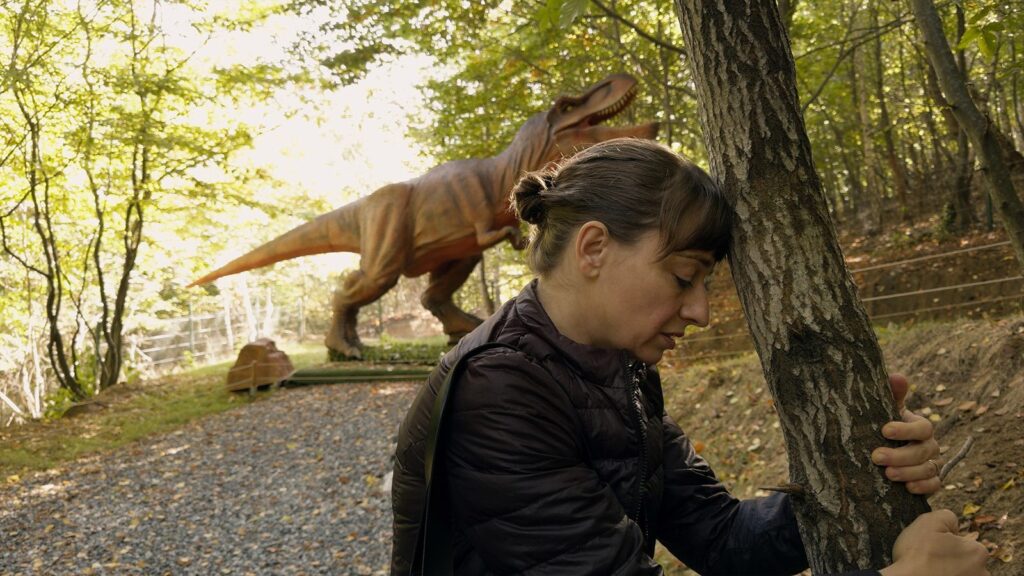Title: Kontinental ’25
Foreign Title:
Year: 2025
Country: Romania
Language: In Romanian, Hungarian and German with English subtitles
Director and Writer: Radu Jude
Radu Jude has stepped off a little from his track of outrageous satire to convey this meta story about cultural clash, overpopulation, displacement and the juggernaut of neo-liberalism. The micro perspective of the tale is displayed by a pivotal event experienced by a bailiff, Orsolya Ionescu (querulously played by Eszter Trompa). At one stage she reflects on the growth in her neighbourhood from a few thousand people when she arrived, to a currant population of 70,000. Throughout the film, the camera pans across the cityscape of Cluj showing mixed architecture, barren building sites and cranes ominously dotting the horizon behind old neighbourhoods.
In the first scene the audience follows the daily routine of a marginalised man, Ion, compellingly played by Gabriel Spahiu. Ion is living in the boiler room of a recently, deceased friend’s building. The new owner is a transnational hotel developer. This story follows Orsolya, who after extending the date of an eviction notice to Ion numerous times, finds herself now having to force the issue with the help of gendarmes.
The proposed housing options leave Ion with no acceptable choices, other than suicide. When Orsolya finds his body, she comes to a moment of truth and is overwhelmed by guilt. She puts a hold on her life, while her family goes on vacation, to try to mitigate her guilt and find some answers
Radu Jude’s clever script throws a light on the rationalisations and hypocrisies of the diverse religious and cultural groups within the society. The perspective from her Romanian friend, when describing the plight of the Roma people who are living in a landfill, advocates “the send money and volunteer” approach. A former student of hers discusses Buddhist philosophy and the Zen approach of “going with the flow”. Her racist and superstitious Hungarian mother has the “just desserts” approach. The church, falls back on “faith and accepting God’s will” approach.
It becomes apparent that the various cultural and ethnic groups although aware of the problems and their outcomes, can not unify their voices and and as such drift into acquiescence. In the end Orsolyo, in resignation, packs her bags and joins her family on vacation.




